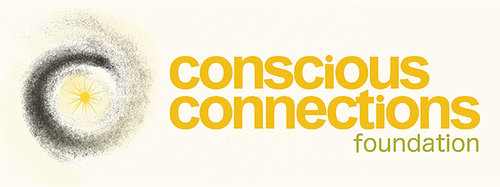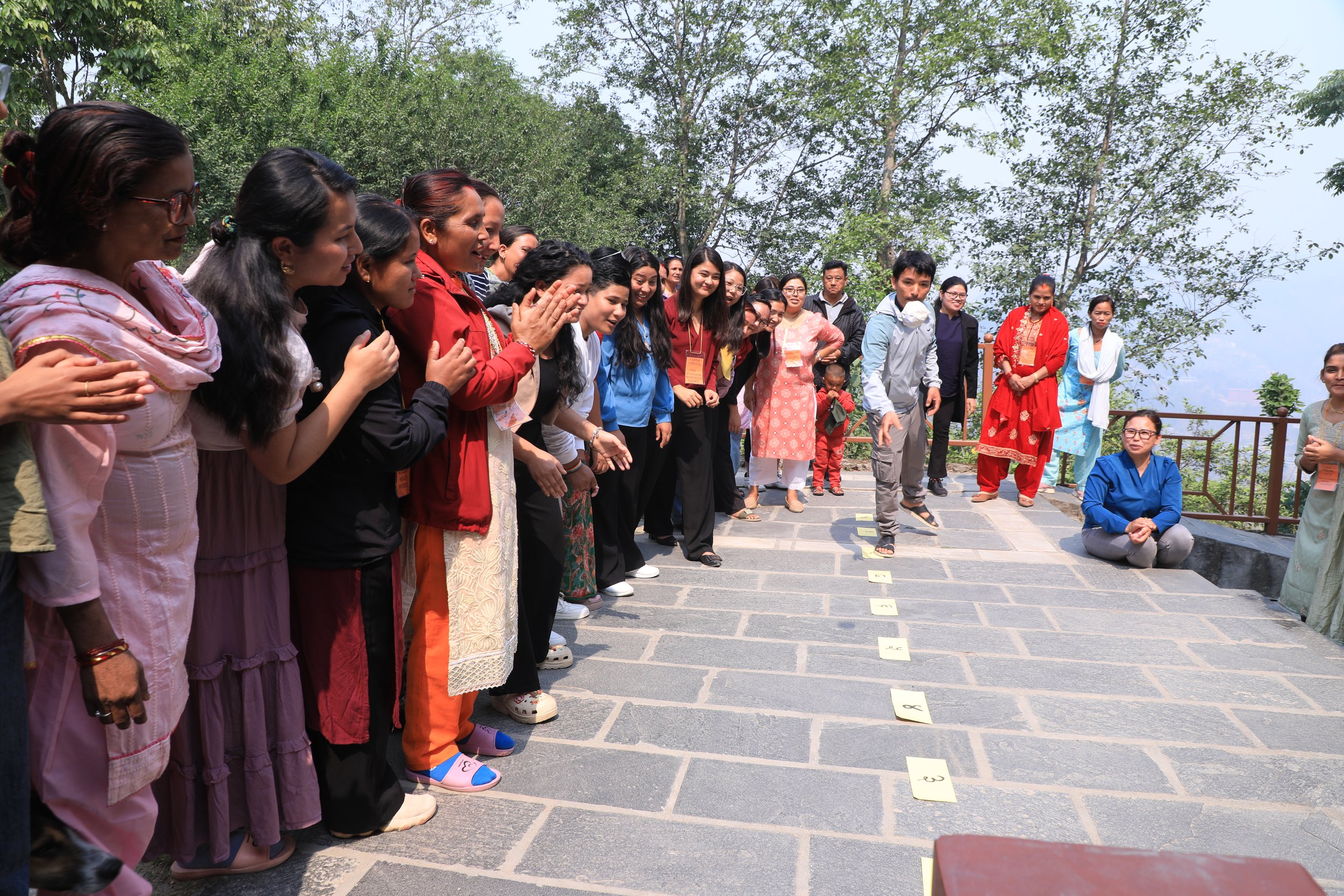Written by Lisa Bower, Board Member
In Part I, we shared how CCF supported its first Menstrual Health & Hygiene (MHM) Training of Trainers (ToT) in May 2024. This three-day gathering brought together a powerful and diverse group of leaders ready to shift narratives and open up honest conversations around menstruation. In Part II, we follow what happened after the training—how participants turned knowledge into action and sparked lasting change.
MHM ToT participants during the May 2024 training
“Only the Grinding Stone Knows the Pain of the Blade”
The ripple effects of the ToT were felt almost immediately. Lead Trainer Anupa Regmi observed powerful changes in both attitude and behavior among participants that were similarly observed by CCN Director Kesang Yudron and CCN Staff Member Igroom Lama:
Openness and Comfort: Participants began speaking more freely about menstruation and reproductive health, even approaching Anupa directly to ask personal questions. For some, it was the first time they had ever spoken openly about their experience. Misconceptions about menstrual products, such as fears around menstrual cups, also started to shift.
Emotional Healing: Survivors of stigma and isolation shared their stories, often tearfully, finding relief in knowing they were not alone, and change was possible.
Immediate Action: Participants left with clear commitments to bringing MHM training to their communities and workplaces.
On the final day of the training, each participant developed an action plan outlining how they would promote menstrual health over the next year. CCF funded customized training packages, including manuals, visual tools, and role-playing guides to help participants succeed in future trainings. Participants also learned to draft basic proposals to secure support for future training initiatives in their communities.
MHM ToT participants during the May 2024 training
ToT participant Ms. Pema Choeden Tamang stated: “This training personally helps me a lot. I am now able to read my body and can [respond] as it needs during my period. Similarly, I can also help people around me to get rid from unnecessary body pains, cognitive and emotions changes, mood swings and effective uses of sanitary and normal pads. I am now able to conduct Menstrual Hygiene training [for] all the age groups.”
The ToT also had a powerful impact on the men who participated. According to Anupa, many expressed a deeper understanding of the challenges surrounding menstrual health, turning the traditional Nepali saying, “Only the grinding stone knows the pain of the blade,” on its head. “Now, we too understand the pain of menstruation,” one participant shared. Many advocated for greater male involvement in such programs, emphasizing that men also need to be educated about dignified menstruation.
Video: ToT Participants from the Association of Craft Producers share their experience
Impact in Action
Since the ToT, participants returned to their communities and have been busy putting their training into practice through training and the distribution of menstrual hygiene kits. Here are a few examples:
A training held at the Association for Craft Producers for 40 in-house artisans and staff.
A participant from Nepalgunj led a community training with a local knitter’s group and is planning a larger session with a nearby school.
At the Tsoknyi monastery, two teachers who attended the ToT facilitated training sessions and the distribution of menstrual hygiene kits to their students.
A training was conducted by Nepal Disabled Women Association in Kavre for 27 participants.
A training on “Inclusive Menstruation Care” was conducted by Mitini Nepal among the LGBTQI + communities.
In addition, trainer Anupa also conducted 2 follow-on trainings on menstruation in Gorkha among Muslim and non-Muslim communities with 40 participants.
In total, 487 menstrual kits were distributed through these follow-on initiatives—reaching hundreds of women and girls.
Ms. Pema Choeden Tamang, who co-led the training at the Tsoknyi monastery, has already observed a direct shift in her students as a result of the training she provided: “Many of our students are now aware of premenstrual symptoms, [and the] definition and understanding of menstruation and puberty. I believe that they are now being more serious and mindful during their periods [...including the] effective usage and disposal of sanitary pads, menstrual cups and normal pads… I, along with our students, are now aware that we need to manage our period, menstrual supplies like sanitary pads or access to a clean toilet are necessary. They are now understanding that, if not properly managed, menstruation can interrupt daily life and cause health issues.”
Photo Credit: Tsoknyi Monastery. Photo of MHM training held at Tsoknyi Gechak School
The Work Ahead
While the outcomes of this ToT were deeply encouraging, there is still much to be done. Anupa identified several key areas for continued focus, which CCF and CCN will keep front and center as we move forward:
Menopause Education: Many women shared that they lack information and support around menopause, leading to confusion, isolation, and depression. Expanding the conversation around menstruation to include the full spectrum of reproductive health is essential to supporting women throughout their lives.
Engaging Men: This ToT affirmed how important it is to include men in conversations about menstrual health. When men understand the realities of menstruation, they are better positioned to challenge stigma and support change at home and in the community. Continued outreach to fathers, husbands, and male leaders is vital.
Access to Products: Some participants, especially from rural areas, reported limited access to safe, affordable menstrual products. This underscores the importance of CCF’s continued work to provide sustainable MHM kits.
Lastly, ongoing mentoring and training, along with stronger communication and facilitation skills, emerged as top priorities for future trainings. Follow-up activities led by Anupa and the CCN team revealed persistent challenges in delivering MHM sessions in communities where cultural and religious taboos remain deeply rooted. Newly trained facilitators often struggled to navigate sensitive conversations with confidence. Although the original ToT included discussion on communication techniques, Anupa emphasized the need for a more in-depth, dedicated session focused on practical skills—such as choosing the right methods for difficult topics, using supportive gestures and expressions, and modeling the qualities of an effective facilitator. Continued mentorship and peer-to-peer support are also vital, providing trainees with space to reflect, ask questions, and grow in their roles. Participants particularly underscored the importance of engaging community and religious leaders to address stigma in a way that honors local traditions while fostering open dialogue—especially in rural areas where change can be slow but deeply impactful.
MHM ToT participants during the May 2024 training
Looking Ahead
The power of ToT lies not just in what was taught, but in who was empowered. When change comes from within the community - led by those who understand its language, customs, and concerns - it is more likely to take root. True behavior change takes time.
Thank you for standing with CCF and CCN on this journey. Your support is helping to break cycles of silence and stigma, and is opening up space for dignity, health, and equity. We’re proud of our inaugural ToT participants and can’t wait to see how they continue transforming conversations across Nepal. Together, we are creating a future where every person can manage their menstrual health with knowledge, confidence, and pride.




